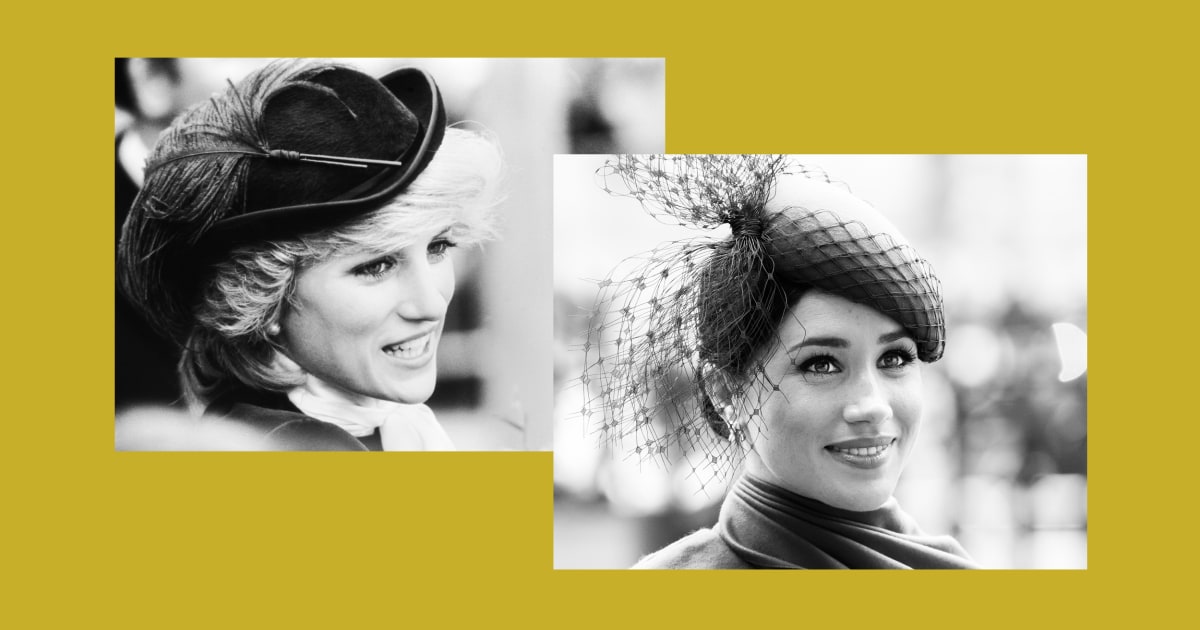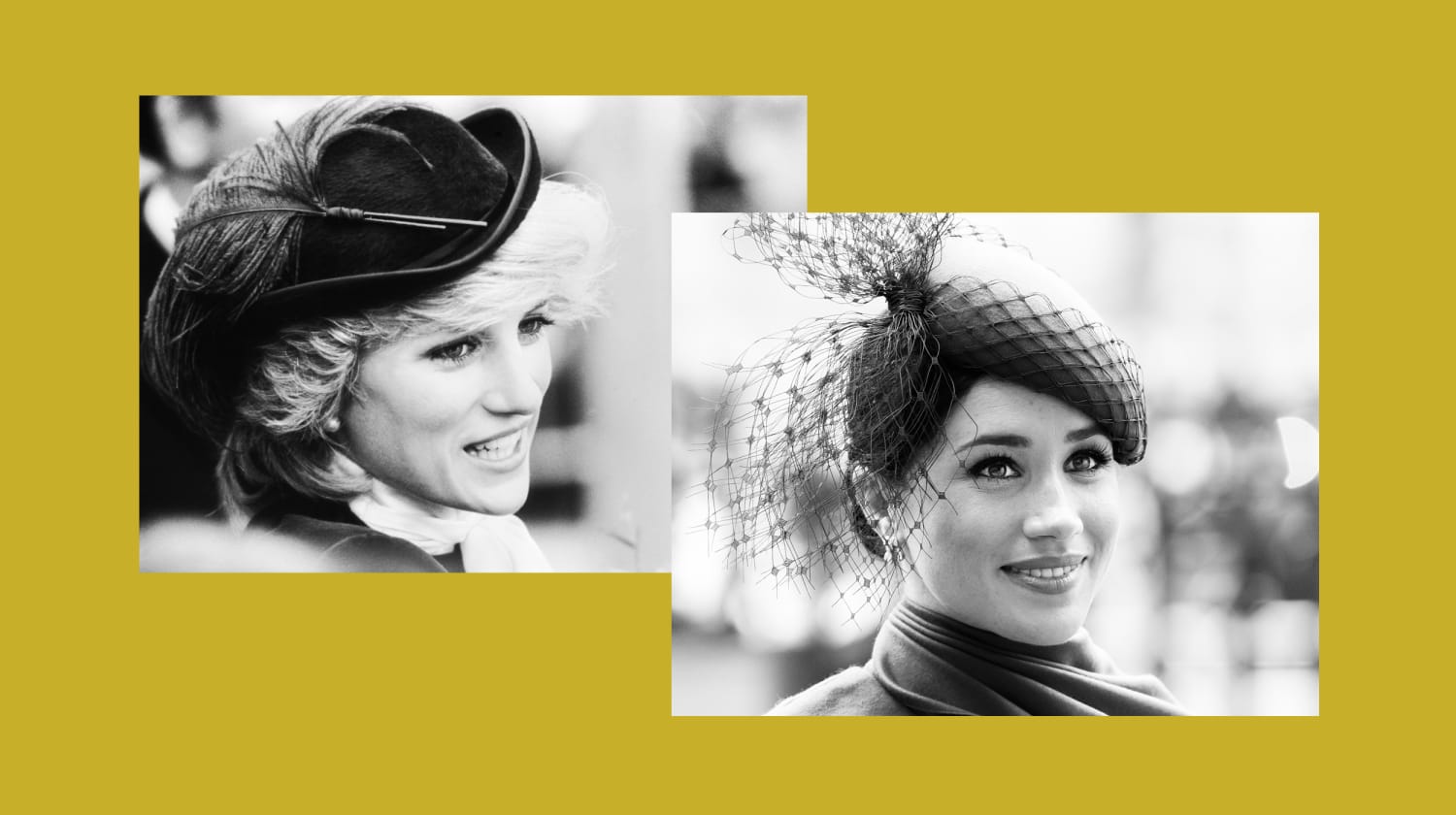
Oprah Winfrey’s landmark interview with Prince Harry and Meghan, Duchess of Sussex, watched by 17.1 million, almost felt like a bonus episode of Season 4 of Netflix’s “The Crown.” It certainly made the line between the scripted series and reality blurrier; the similarities between the two dramas are, we now know, truly uncanny.
Listening to Meghan unload about how lonely and suffocating life at Buckingham Palace was, and how unprepared she was for that, her words might have come out of the mouth of Princess Diana, who died in 1997 at age 36 — or her avatar in the Netflix series, Emma Corrin.
Just like Diana, Meghan was initially warmly welcomed to the Royal Family, and brought it the glamour of a stunning, fashionable American actor, with the added frisson of being biracial. Only, once married and bound to “The Firm,” as the institution of the monarchy is more broadly known, Meghan was no longer allowed to be Meghan and being biracial became seen as a decided liability.
To Winfrey, Meghan complained that “The Firm,” did little to protect her from the ravages of the British tabloids and was unconcerned about her deteriorating mental health, causing her to confess startling thoughts of suicide.
It’s hard to know what parts are really true when watching “The Crown,” because well-told narratives have a way of embedding in our brains. But there seems to be something to it.
“I was ashamed to have to admit it to Harry,” she told Winfrey. “I knew that if I didn’t say it, I would do it. I just didn’t want to be alive anymore.”
Diana, after the glow of a royal wedding wore off, also found herself isolated, without allies, and in a loveless marriage to Prince Charles, who was 13 years her senior and in love with another woman. Given no support by The Firm and the cold shoulder by the family, we now know Diana turned both to other men and bulimia for comfort.
“You inflict it upon yourself because your self-esteem is at a low ebb, and you don’t think you’re worthy or valuable,” she told the BBC’s Martin Bashir in an explosive interview in 1995. (The BBC is reportedly conducting an investigation into whether Bashir used forged documents to convince Diana that staffers were being paid to spy on her; British police only last week ruled out one of their own.) “You fill your stomach up four or five times a day — some do it more — and it gives you a feeling of comfort.”
It was that same interview in which Diana told the world her husband was cheating on her, and there were “three of us” in their marriage, ultimately winning more sympathy than barbs from the international public.
Charles, of course, was said to be unhappy as well. In Season 4 of “The Crown,” which portrays this time period, he tells his mother several times that “he’s suffering,” pleading to let him follow his love for Camilla Bowles. (The two are now married in real life.) But the Queen shuts him down, reminding him that duty to the monarchy comes before all else. The Charles of the series obeys; so, apparently, did the Charles in real life.
It’s much harder to control the storyline when the rebuffed players are more sympathetic than a steely, cold monarchy ruled by pretense and myths.
Harry instead broke with The Firm’s prescriptive and constrictive lifestyle, though at the cost of alienating his father who reportedly no longer returns his phone calls.
“There is a lot to work through there,” Harry said about his relationship with his father in the Winfrey interview. “I feel really let down. He’s been through something similar. He knows what pain feels like.”
Meghan, too, appears to have been as emotionally fragile as Diana once was — only Meghan was, in the end, more fortunate. She had Harry, and they were allowed to give up their titles, were cut off financially and moved to California.
Of course, it’s hard to know what parts are really true when watching “The Crown,” because well-told, credible narratives have a way of embedding in our brains and becoming our truths even when they are not.
But there seems to be something to it; Harry admitted last month to James Corden.
“It’s fictional, but it’s loosely based on the truth,” said Harry. “Of course, it’s not strictly accurate, but loosely, it gives you a rough idea about what that lifestyle, what the pressures of putting duty and service above family and everything else, what can come from that.”
Publicly admitting you are human, it seems, works better than an attempt to assert the privileges of dynastic, monarchical power in the modern media era.
Perhaps that’s why season four’s take on Charles and Diana’s dissolving marriage finally angered the palace, according to close pals of Charles, who claim the series is exploiting pain for financial gain.
Aware that an estimated 29 million Brits watched the series, the U.K.’s culture secretary wrote to the streaming giant in November demanding it include a “health warning” at the start of each episode. He wanted it made clear to viewers that “The Crown” is pure fiction and not fact, afraid the series was harming the monarchy’s reputation.
Netflix declined. And now people believe that even less.
Meghan and her late mother-in-law, Diana, seemingly mastered derailing the institutional narratives laid out by The Firm. After all, it’s much harder to control the storyline when the rebuffed players are more sympathetic than a steely, cold monarchy ruled by pretense and myths.
And now, no matter how hard Buckingham Palace tries to micromanage the message, Winfrey’s damning interview, combined with Diana’s own words and the family’s portrayal in “The Crown” — and especially the Charles and Diana act in season four — show they cannot control the narrative (at least on this side of the pond).
It didn’t stop them from trying: Days before the Winfrey interview, the palace fed a story about Meghan bullying two staffers when she was part of the royal household. The transparent timing of the leak was clearly designed to defuse whatever allegations were made in the interview, but it couldn’t.
Meghan and Harry’s candid, emotional stories of The Firm’s cruelty and the racism are far more believable than a secondhand report of bullying, especially watching the vulnerable couple reveal their pain.
Publicly admitting you are human, it seems, works better than an attempt to assert the privileges of dynastic, monarchical power in the modern media era.
Ironically, Harry and Meghan may again have the last word. They have signed a multiyear production deal with Netflix — which produces “The Crown” — giving them yet another chance to usurp the narrative.
Source: | This article originally belongs to Nbcnews.com










